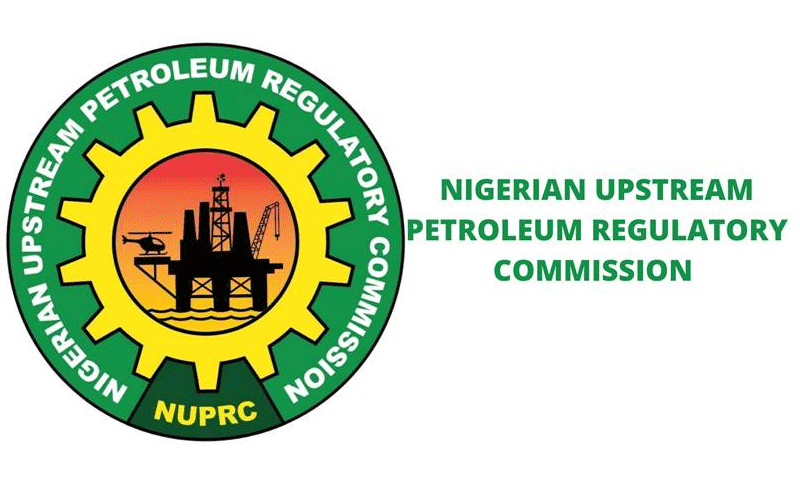
•Raises committee to identify unexplored assets, others
•Operators will struggle in 5 years if nothing is done, says upstream regulator
Emmanuel Addeh in Abuja
The Nigerian Upstream Petroleum Regulatory Commission (NUPRC) yesterday continued its search for higher crude oil output in Nigeria, with a renewed focus on ways to unlock about 810,000 daily output from the country’s current 6.8 billion deep offshore oil reserves.
To this end, the upstream oil regulator engaged key oil producers, mostly comprising International Oil Companies (IOCs) in Abuja on: “Harnessing the Potential of Shallow and Deepwater Oil and Gas Accumulations Through Cluster/Nodal Development in Nigeria.”
Speaking at the event, the Commission’s Chief Executive (CCE), Gbenga Komolafe, noted that if followed through diligently, the planned initiative has the potential to maximise the benefits of Nigeria’s hydrocarbons resources, and transform deepwater oil and gas development in Nigeria.
He listed recent moves by the commission to raise oil and gas output, including the incremental oil and gas production through the restoration of shut-in strings; Project 1 million bpd; strategic engagement on operators funding and rig needs; heavy crude oil development, among others.
Since the 1993 licensing round, Komolafe stated that the offshore operations have mainly been successful with major discoveries such as Bonga, Agbami, Erha, and Egina fields to mention a few, but that production has recently begun to decline.
“Today, our deep offshore reserves stand at about 6.8 billion barrels, accounting for approximately 18 per cent of total oil and condensate reserves. Peak oil production from our deepwater activities once reached about 800,000 barrels of oil per day in 2016, but has nose-dived to less than 500,000 bpd, contributing about 26 per cent of total oil production, today.
“The challenge for us all is how can we increase wallet share from deepwater operations,” Komolafe, who was represented by the Executive Commissioner for Economic Regulation and Strategic Planning, Babajide Fashina, stressed.
Thanks to the operating companies: Star Deepwater, ESSO, Nigeria Agip Exploration (NAE), Shell Nigeria Exploration and Production Company (SNEPCO) and Total Energies Upstream Petroleum Nigeria (TUPN), he stated that Nigeria can boast of over 4.4 billion barrels cumulative oil production from deepwater operations, supported by eight Floating Production, Storage and Offloading (FPSO) facilities.
As the upstream industry regulator, the commission stated that it recognises that there is a huge deepwater opportunity for Nigeria to harness, explaining that current records reveal that the yet-to-be developed deepwater opportunities consist of over 5.13 billion barrels and 13.53 TCF of oil and Non-Associated Gas (NAG), respectively.
“Embedded in the foregoing reserves is locked potential of about 3.59 billion 2P oil and condensate reserves, circa 4.67 TCF of AG reserves, and approximately 13.53 TCF of NAG reserves in undeveloped fields.
“A further preliminary deep dive shows that our regulatory instruments through Field Development Plan (FDP) Approvals have a few developments-in-view which could unlock around 1.55 billion 2P oil and condensate reserves with associated gas volume of approximately 1.49 TCF.
“Execution of the approved FDPs in the deep offshore fields could bring additional 810,000 bpd of peak oil production. The question posed here is what is holding back the developments”, he added
In light of this, Komolafe noted that he constituted a shallow and deepwater cluster development committee in the commission to collaborate with deepwater industry players on how to unlock the potential through feasible cluster or nodal developments.
Komolafe stated that Nigeria stands at a critical juncture in the nation’s energy landscape, one that demands innovation, collaboration, and a steadfast commitment to sustainable development.
He emphasised that as the mainstay of the economy, and a vital contributor to the national revenue, it was imperative that the industry takes decisive steps to grow and sustain oil production and put the nation back on the path of growth and stability.
“As we are aware, collaboratively, we have been able to ramp up the country’s average year to date oil and condensate production to 1.75 million barrels per day, which falls short of our huge technical allowable potential of 2.2 million barrels of oil per day. We believe we can do more volumes.
“As a commission whose mandate is to ensure resources are optimally developed in a safe and environmentally friendly manner to guarantee energy security and economic prosperity, this call is to ensure that the ambitious but realistic shallow and deepwater cluster/nodal development initiative aimed at ramping up our daily oil production is achieved.
“This Initiative is designed to guarantee maximum value delivery from our assets and ensure a sustainable energy landscape. It is a collaborative approach aimed at identifying low hanging opportunities and the potential threats to maturing and streaming these opportunities leading to possible interventions of government and stakeholders at all levels,” he pointed out.
In his presentation, the Executive Commissioner, Development and Production at the NUPRC, Enorense Amadasu, reiterated that with the execution of the approved development plan in the deep offshore by the commission, this is expected to bring in additional 810,000 bpd to Nigeria.
“What has the government done previously to bring out those values? So we go to the petroleum profit tax from deep water, which is now 50 per cent, for the hydrocarbon tax it is 30 per cent. For the PPL, it is 15 per cent. And then even for the deep water it is 0 per cent. And we understand that this is how it’s supposed to be,” he stated.
Despite all the incentives, he stated that Nigeria is not where it wants to be, the reason the meeting was called, to sit down with the operators and to find out whether there was any other thing that could be done to raise production in the deep offshore.
Amadasu mentioned a number of other interventions by President Bola Tinubu, including Orders 40, 41, and 42, bordering on tax incentives, local content compliance, acceleration of contracting cycle and reduction in costs.
“Beyond all of these, what else can the government do? What else can we do? “, he asked , noting that that was the essence of the stakeholders meeting.
From the preliminary studies in-house done by NUPRC, he listed some of the problems as accumulation beyond thresholds with respect to volumes as well as technology costs and technology availability.
According to him, standing alone will be sub-optimal, but collaboration will be economically viable, underscoring the importance of risk sharing. Working together, he said that he believed that all the operators will be willing to quickly take their Final Investment Decisions (FID) in the not too distant future.
“How can we pull three, four people together and evolve a policy that is similar to a joint venture? That is why we have this meeting. So we believe it can be done. If we don’t do anything now, in another five years, we will struggle very well as upstream operators,” Amadasu stated.
He added that a committee which was raised has some points of reference which include other sub-committees like infrastructure development; validation of volumes; economics; further interventions, among others.
In his remarks, the Head of Production Sharing Contracts (PSC) at the NNPC Investment Management Services (NUIMS), Abba Yakubu, who said he had no mandate to speak on behalf of the organisation, however stated that the assets in the deep water space are clustered, even by geographical positioning.
Calling for collaboration, he stated that there was the need for operators to come together to develop the assets, so that at the end of the day, they can possibly drive down the capex. “If you consider standing alone, those assets will never be developed,” Abba emphasised.





